The Role of Ai in Healthcare App Development
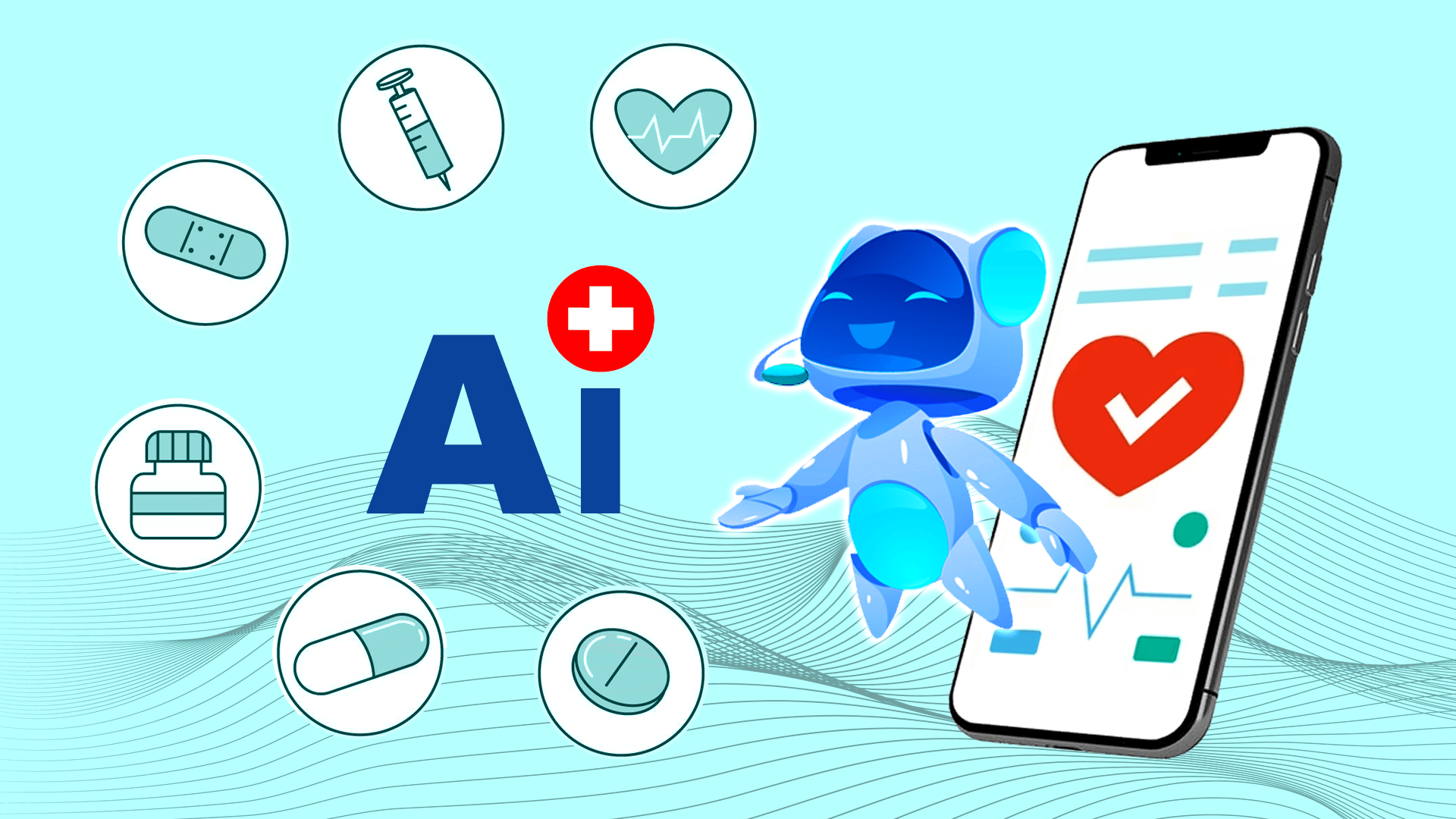
In recent years, AI and the healthcare industry has seen emerging possibilities along transforming concepts in medical diagnosis, treatment as well as patient care. The increasing number of AI applications in the healthcare industry is transforming a new map, opening up revolutionary possibilities that were only defined as science fiction.
The global artificial intelligence in the healthcare market was valued at US$ 16.3 billion by 2022 and is projected to grow at a CAGR of about 40.2% .Completed to reach USD 8,810 million by 2029. The growth of the healthcare AI market is phenomenal and very substantial.Here are some insights about AI and the healthcare market:
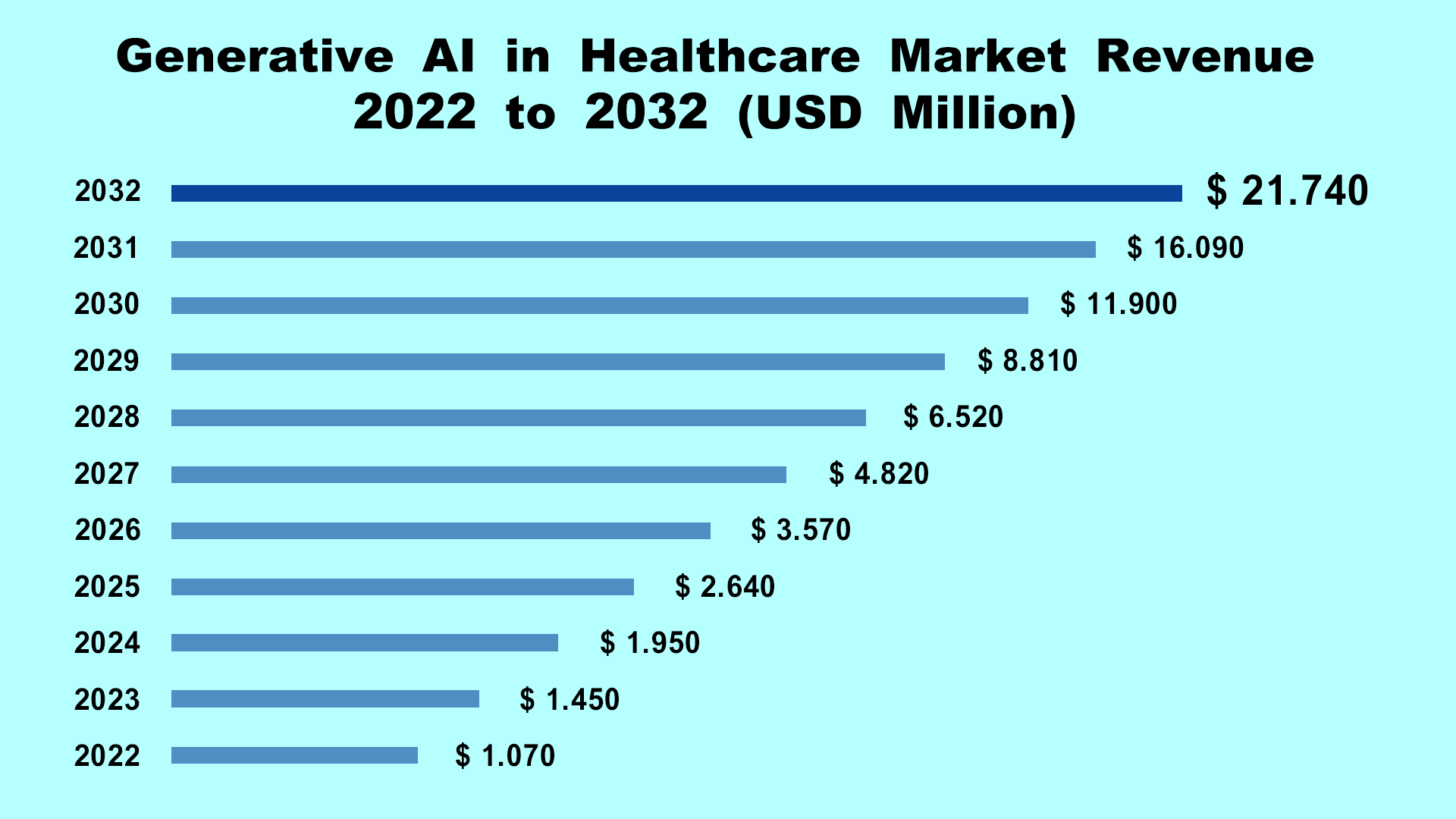
This blog has two purposes which are to lighten the context of development around AI in medicine on one hand and provide an example that proves a practical implementation of innovation into the health-care once again very tangible benefits yield when targeting technology creations at this human sphere. Travel with us in this journey where every milestone offers the prospects of a healthier and more efficient future.
Overview of Artificial Intelligence in Healthcare
The field of computer science that focuses on building intelligent machines is known as Artificial Intelligence (AI). This area has had a groundbreaking effect in the healthcare industry. The principal goal of AI is human intelligence imitation allowing machines to undertake processes that demand some form of the cognitive abilities, which include learning, reasoning as well as problem solving and decision making.
In the medical field, AI is used to analyze enormous amounts of clinical data in minutes. This information may include patient charts, diagnostic images, clinical notes and research reports. The introduction of AI in healthcare is a complex process that has involved several technologies growing the system.
Key Components of AI in Healthcare
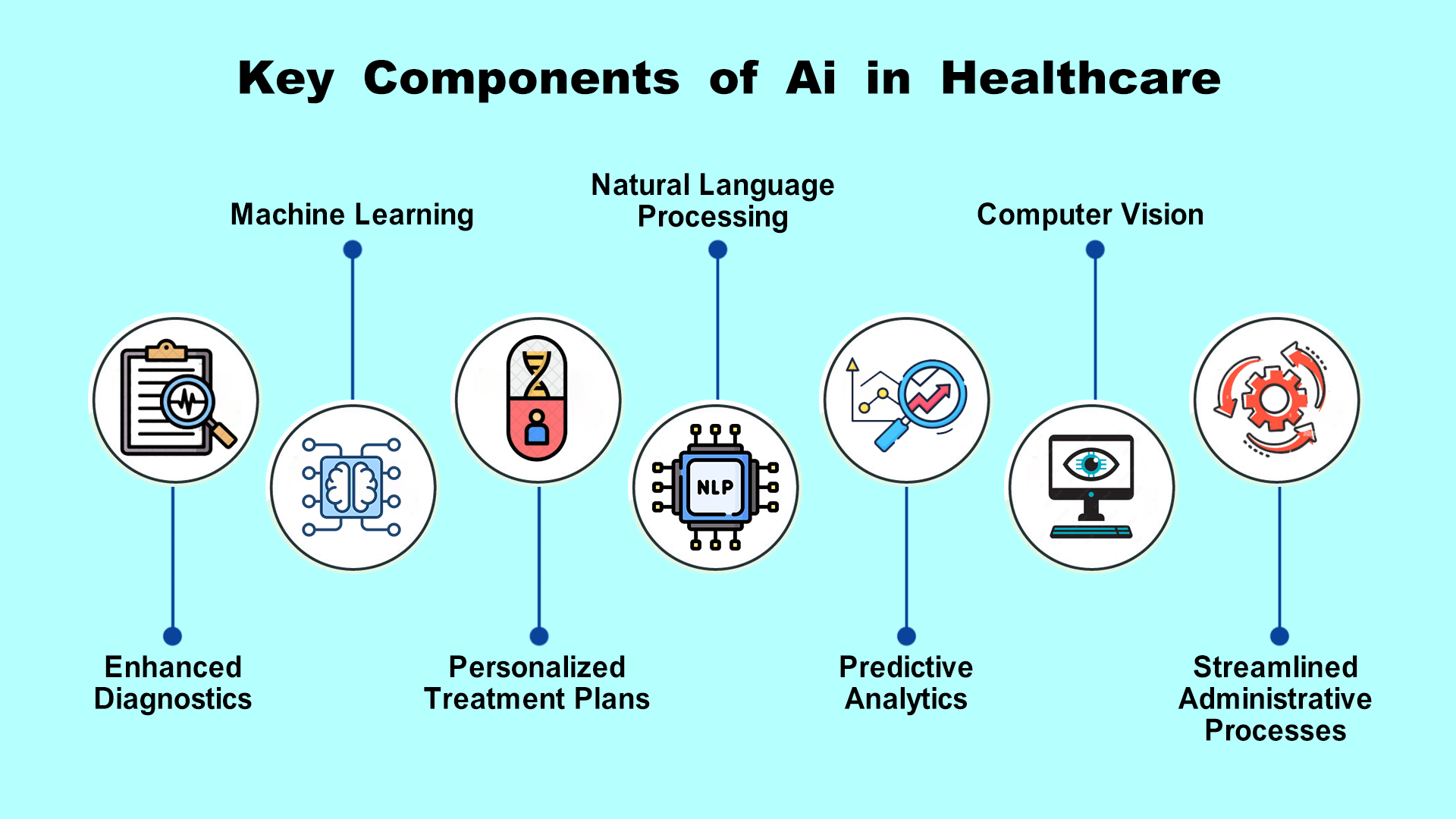
- Machine Learning (ML): Machine learning, a key sub-topic of AI within the broader contexts under which it operates in health offers an opportunity to enhance healthcare by leveraging analytics capabilities. In the medical field, ML algorithms analyze patients’ data to discover patterns, forecast outcomes and improve treatment plans.
- Natural Language Processing (NLP): NLP makes it possible for machines to understand and generate human languages. In the healthcare field, it enables us to get meaningful inferences out of unstructured data like clinical notes and research articles that makes information retrieval simpler.
- Computer Vision: The computer vision of AI plays a crucial role in healthcare imaging. This includes image interpretation of X-rays, MRI and CT scans for diagnostics as well as treatment planning.
Transformational Impact on Healthcare
The incorporation of AI is reinventing the healthcare sector in a very fundamental way, providing answers to age-old problems and creating pathways for groundbreaking opportunities.
- Enhanced Diagnostics: AI algorithms are very good at analyzing large datasets, which means that more reliable and timely diagnostics can be performed. This is more apparent in radiology, where AI improves early detection of diseases by interpreting medical imaging results quickly.
- Personalized Treatment Plans: AI enables the analysis of patient data, which in turn allows creating personalized treatment plans based on individual characteristics and needs. This precision medicine strategy improves treatment effectiveness with minimum side effects.
- Predictive Analytics:The predictive nature of AI assists healthcare professionals in forecasting patient outcomes, identifying high-risk individuals and enabling resources utilization. This approach contributes to preventative care and resource management.
- Streamlined Administrative Processes: Apart from clinical uses, AI is simplifying the administrative process as well. Billing and coding, appointment scheduling among other aspects of an organization’s operational efficiency are boosted through AI-enabled automation enabling medical personnel to spend more time on patient care.
As we dig deeper into AI in the healthcare setting, it is clear that this technology does not operate as a mere tool but rather catalyzes advancements. In this section, we will reveal particular cases and applications where AI’s influence is noticeable so as to demonstrate the lively character of AI in healthcare practice development.
How is AI Used in Healthcare Applications?
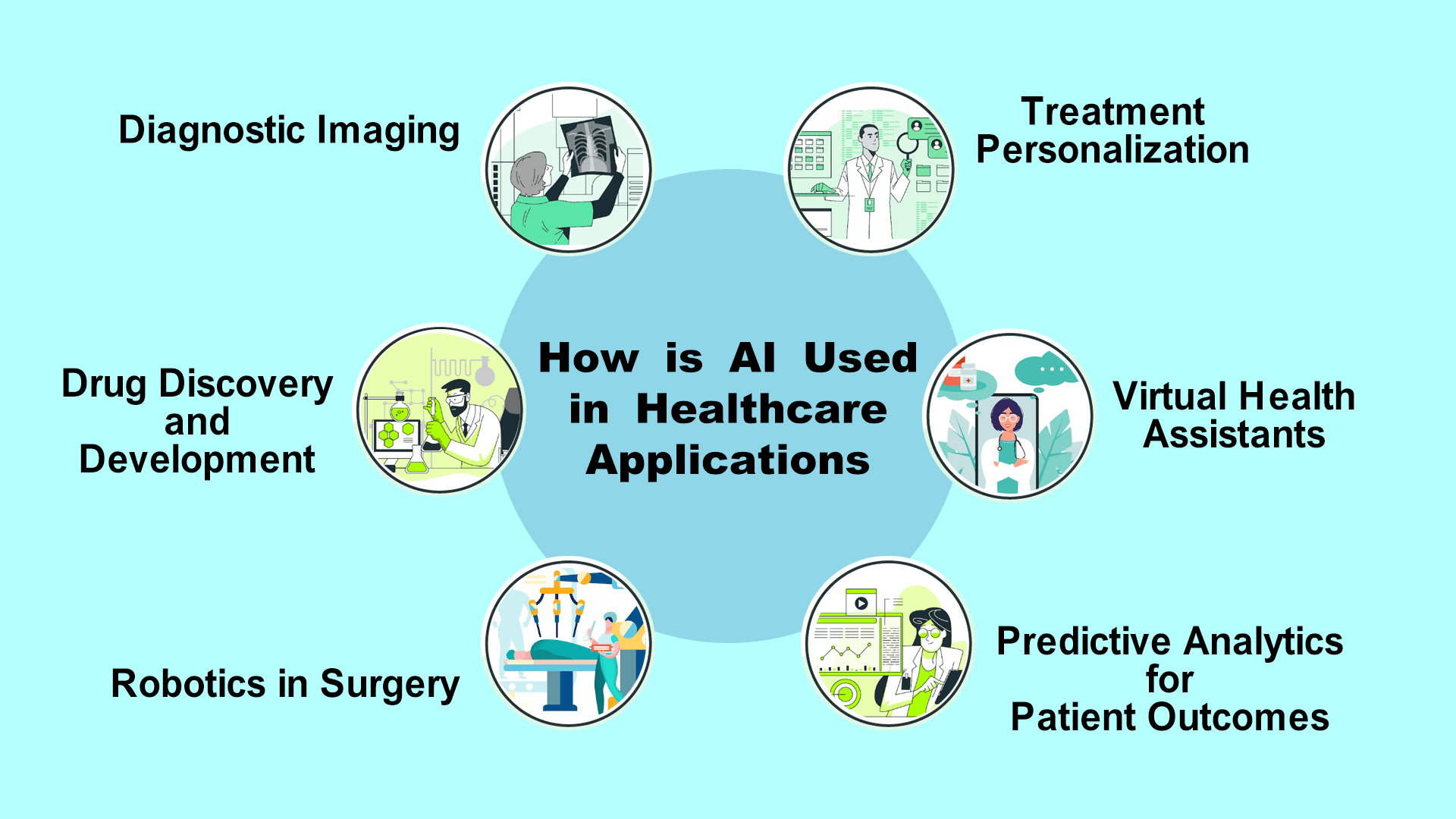
AI has reached every nook and corner of the healthcare industry, exhibiting a unique ability to combat challenges by improving multiple domains concerning patient care. AI allows the provision of opportunities to reduce human error that leads to assisting medical professionals and staff in delivering patient services 24/7. With the progress of AI tools, there is an opportunity to apply. The following sections discuss specific instances and domains where AI technologies are doing wonders.
- Diagnostic Imaging
The ability of AI to interpret medical images is transforming diagnostic procedures. For example, in the discipline of radiology, AI algorithms are capable of analyzing X-rays MRIs or CT scans with incredible precision. This not only speeds diagnosis but also helps in the early detection of diseases like cancer. Firms such as Aidoc use AI to identify abnormalities in medical images and allow radiologists time saving mechanisms for more critical cases.
- Treatment Personalization
AI plays a key part in differentiating treatment plans to patients. Based on the analysis of large databases such as genetic records and past treatment responses, AI can determine individualized treatments. For instance, IBM’s Watson for Oncology reviews medical literature, clinical trial data and patient records to provide individually tailored cancer treatment options based upon the cutting edge of new oncological knowledge.
- Virtual Health Assistants
AI-driven virtual health assistants are improving patient engagement and bringing instant support to people. Such AI-driven chatbots provide information on symptoms, treatment medications and post-treatment care. For instance, the AI chatbot developed by Ada Health interacts with users and captures information on their symptoms that ultimately supports patients during medical consultations.
- Predictive Analytics for Patient Outcomes
With predictive analytics offered by AI, healthcare professionals are able to see into patient outcomes and act upon them before disastrous situations occur. Machine learning models exploit the patient data to determine the patterns linked with possible health risks. This facilitates the early detection of at-risk individuals so that appropriate interventions can be made in time for better outcomes.
- Robotics in Surgery
Robotic-assisted AI surgery is revolutionizing the accuracy and efficacy of surgical operations. For instance, the da Vinci Surgical System leverages robotics and AI to enable surgeons to carry out minimally invasive surgeries with increased precision and dexterity. This leads not only to decreased recovery times, but also improved overall surgical results.
- Drug Discovery and Development
Artificial intelligence hastens the drug discovery and development in pharmaceuticals. Biological data collected from machine learning models is analyzed to come up with potential drug candidates; this has greatly reduced the time taken for doing research. Intelligent designs of drug molecules with specific therapeutic features such as Insilico Medicine using AI, would revolutionize the pipeline for pharmaceutical development.
The applications described are a mere glimpse into AI’s transformative potential in healthcare. AI provides a platform for innovation through enhancing the accuracy of diagnostics, personalizing treatment methods and optimizing surgeries. Moving forward, the next section will discuss AI in healthcare management and underscore how it improves administrative processes by streamlining resource allocation within institutions.
The Role of Artificial Intelligence in Healthcare Management
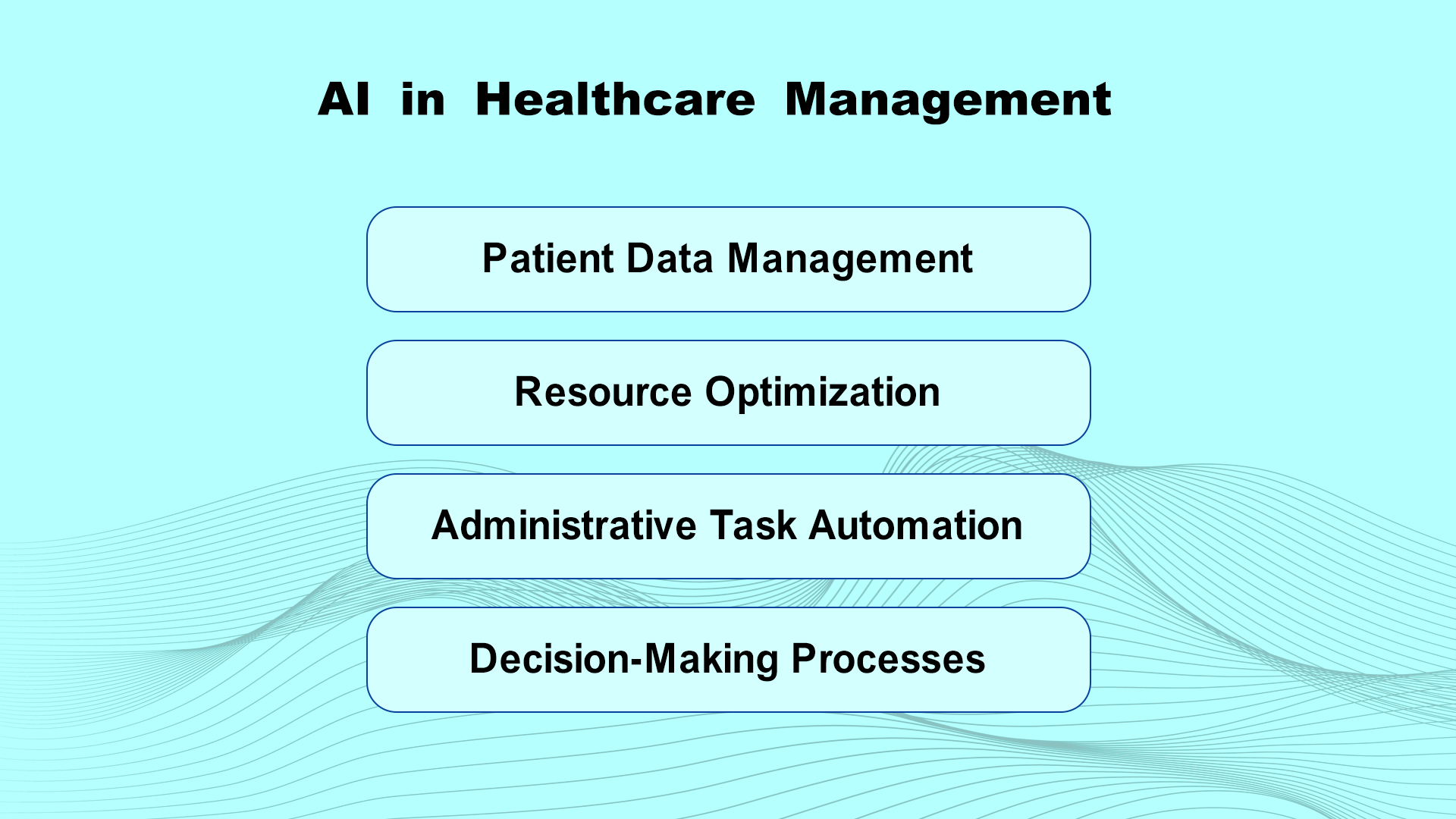
Although AI is not limited to clinical practice, it goes deep down into the scope of healthcare management reinventing how organizations manage their information and resources as well as make crucial decisions. This section will focus on the complex function of AI in healthcare management, revealing how it reshapes administrative duties and decision-making procedures.
- Patient Data Management
AI transforms patient data management, providing answers to the problems raised by growing healthcare volumes of data. By using data analytics and machine learning algorithms, AI streamlines the organization of huge datasets containing real-life patient information. This not only makes the healthcare professionals more efficient , but also leads to better diagnoses and tailor made treatment plans.
In addition, AI-powered predictive analytics allows healthcare organizations to forecast patient demands. Based on past patient admission records, AI can predict future admissions and enable hospitals to prepare in advance for peak demand periods. This proactive strategy helps both in patient care and the optimal use of resource utilization.
- Resource Optimization
One of the most important issues in healthcare management is resource optimization including human, tools and equipment as well buildings. AI holds a crucial position in solving this problem by simplifying workflows and making sure proper utilization of resources.
AI-driven systems can study patient flow patterns, anticipate peak admission times and adjust staffing accordingly. It does not only lead to better patient perception due to reduced waiting times, but it also increases the whole efficiency of health care provision.
Moreover, AI helps in the regulation of inventory by forecasting the need for medical items and medicines. Healthcare organizations can run more economically by eliminating redundant inventory, while ensuring availability of necessary resources.
- Administrative Task Automation
Administrative automation is one of the fundamental characteristics of AI in healthcare management. Routine tasks such as appointment scheduling, billing and coding can be effectively handled by AI systems thereby allowing the healthcare professionals to concentrate on providing medical care.
Chatbots and virtual assistants, supported by machine learning technologies, help automate patient communication with more specific information on treatment visits, medications schedule following the treatment as well. This not only increases patient involvement but also reduces the administrative load on healthcare staff.
- Decision-Making Processes
Data-driven insights enable healthcare managers and executives to make smarter decisions through AI. AI is capable of analyzing massive amounts of data to identify trends, patterns as well as possible areas for improvement. This allows healthcare leaders to make strategic decisions that improve operational efficiency and the quality of care.
In financial management, AI assists in budget reporting and predictions using data from past years to predict what will happen this year. This allows healthcare organizations to spend their resources, allocate capital expenditure and operate in a highly dynamic financial terrain.
Artificial Intelligence has revolutionized the art of healthcare management through better data processing, resource utilization, automation handling administrative activities and supporting informed decision making by using advanced analytics. Moving on to the next section, we will explore ethical aspects of AI in the healthcare field considering the growing need for ethically and responsibly driven approaches throughout this dynamic phase.
Responsibility and Ethics in AI in Healthcare
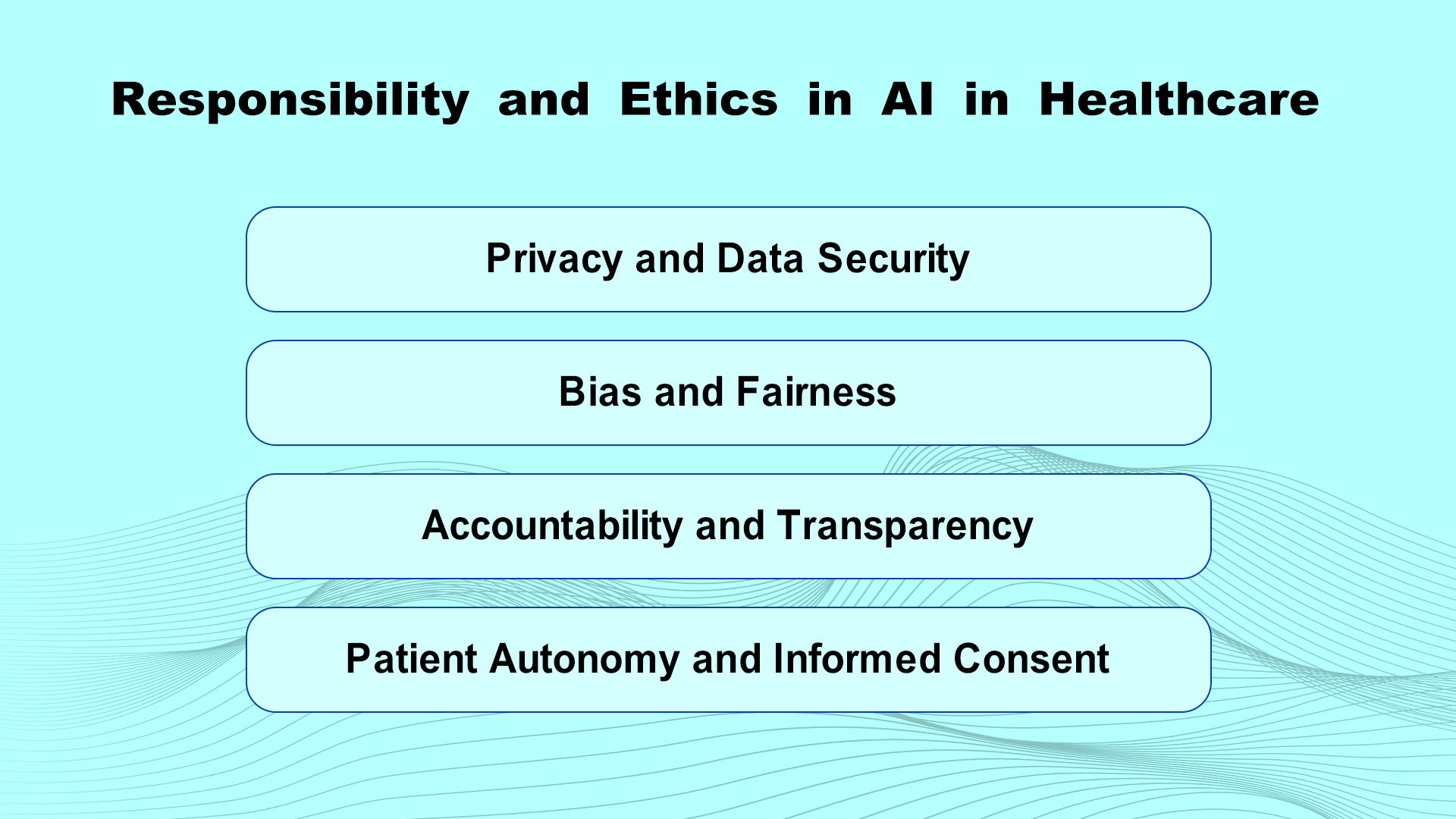
With AI creating its own intricate tapestry within healthcare, ethical issues become the focal point. The introduction of AI in the medical field surfaces many challenges and ethical questions that need to be handled with care. In the following section, we will look at ethical implications of AI implementation in healthcare and reflect on how developers and practitioners equally share responsibility for appropriate AI use.
- Privacy and Data Security
Perhaps one of the most prominent ethical related issues as far as AI healthcare applications is concerned relates with confidentiality and protection of patient data. The high dependency of AI on large datasets for training and decision making means that when dealing with sensitive patient information, heightened security measures should be put in place. To ensure that patient identities are safe, the developers need to focus on strong encryption strategies and those of secure storage, and anonymization techniques.
Furthermore, data usage transparency and defined consent mechanisms play huge roles. Healthcare providers, developers and the individuals whose data is being leveraged should be knowledgeable of how their information will be employed in AI applications which would ensure trust establishment.
- Bias and Fairness
The risk of bias in AI algorithms is a serious ethical issue. When the training data applied to creating AI models reflects bias prevalent in healthcare practice, this may lead to algorithms perpetuating and intensifying these biases. AI’s developers should aim at being fair and equal to all human beings, regardless of their group affiliations.
Besides, the role of vigilance is required in healthcare workers because evidently they should learn to react to biased decisions made with AI. Periodic audits of algorithms and constant evaluation of notions on the affected groups, regardless of perceived risk to ethical concerns, are fundamental steps in managing bias.
- Accountability and Transparency
The consequences resulting from AI implementation in health care is a shared responsibility. Healthcare professionals should understand, and developers need to design AI systems that are explicitly transparent instead of the commonly used ‘black box’ methodology. A transparency mechanism is also an important factor for creating a sense of responsibility, as developers should be provided with an adequate communication line that allows them to exchange communications without any difficulties.
Health practitioners, in second place, have the responsibility of being intelligent users of AI systems. This requires knowing the boundary of AI to utilize its recommendations likewise measuring it and interference in case they fail. Failure to open the communication channel between developers and healthcare professionals leaves unaddressed challenges that may be inevitable in a majority of cases, as well as negatively impacts constant improvements made to AI systems.
- Patient Autonomy and Informed Consent
The principle of respecting patient ‘s autonomy should constitute an element of the ethical basis upon which medical activities and decisions ought to hinge. The two pivotal stakeholders of AI technologies are the developers and healthcare professionals who should ensure that measures favoring informed consent implementation are taken into consideration. The use of AI in patients’ care should be justifiable to the concerned parties, and there needs to be an adequate understanding of what it is meant for them among other things. This helps in educating clients of why they should include AI into their care because it is helpful.
In conclusion, AI in healthcare ethically should involve initiatives from developers to contribute parts of AI technology, medical professionals and policymakers. A successful harmony between technology improvement and human values is unavoidable for creation of trust in AI applications as well as the backing up of patient health benefits. Moving forward to the latter, we will turn to a sample case - Alertive by Addevice representing how responsible AI works in real life and its practical importance for health delivery.
Addevice's Experience with Alertive
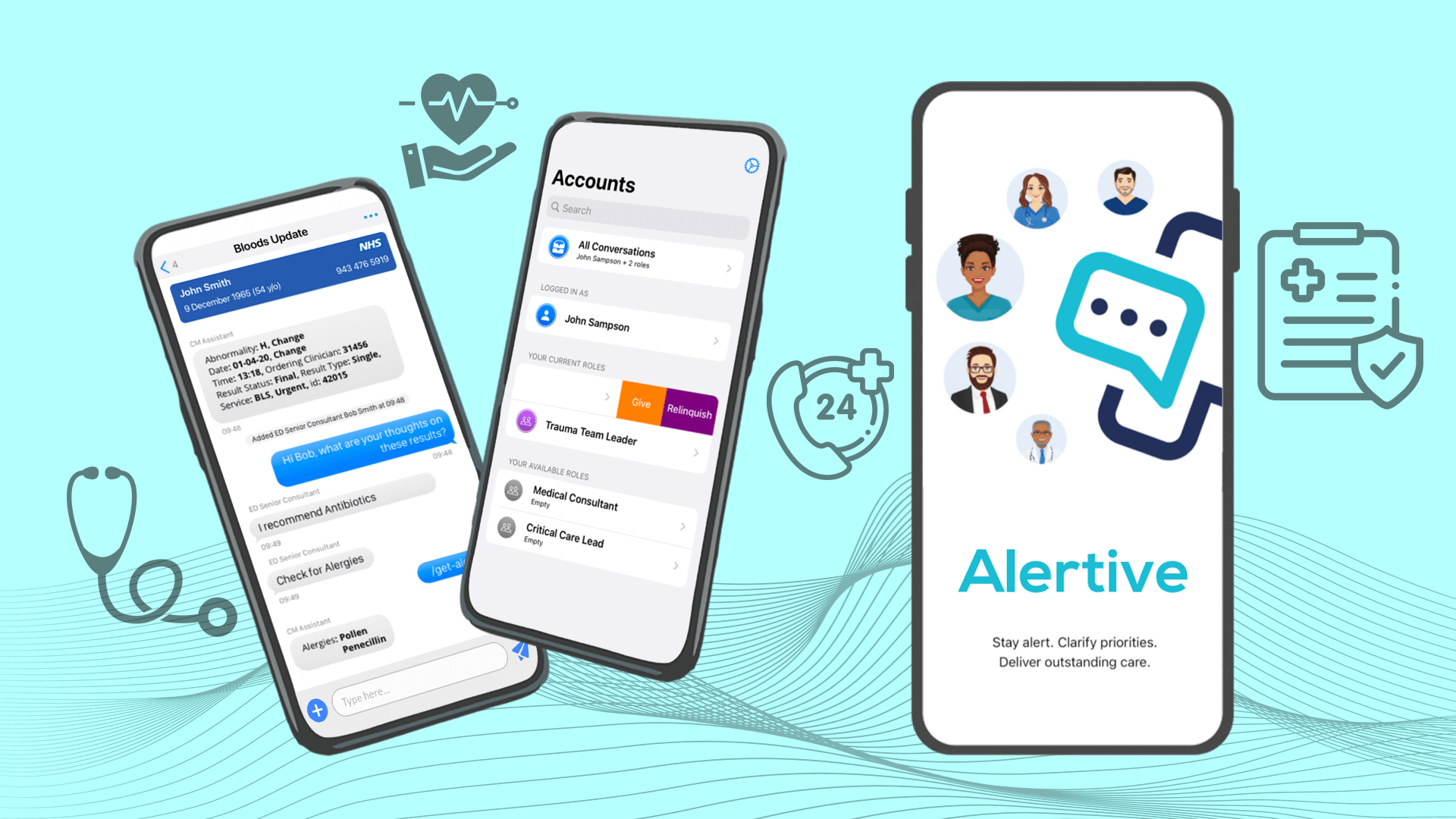
The story of Alertive goes, it has been through every significant position since innocence. The Alertive mobile health application was born with an idea of reforming healthcare by taking up advanced technologies. The triumph of Addevice in the most complicated situation to resolve challenges within the healthcare environment is patient surfeit, administrative load accompanied by smooth coordination between providers and patients.
Project Objectives and Challenges
Founded by an Irish-American, Alertive emerged from a handful of healthcare challenges including patient flow, overburdened medical system, numerous paper works, excessive readmission numbers and the associated needs for harmonization with varying medical monitoring instruments. Starting its hunt to develop such a solution that not only omits these problems but also promotes women’s privacy and security, Alertive clearly distinguishes itself from the competition.
Strategic Solutions Implemented
These challenges were sought to meet the results of a combined strategic implementation enacted by Addevice within Alertive. The team understood that better doctor-patient communication was needed, repetitive administrative work should be automated, and all the medical monitoring tools had to operate in conjunction with one another. The solutions developed included simplifying patient health data monitoring, a remote system to monitor activities of patients by Kiwanda Earning Machine at the comfort of their homes while satcking and nursing care as well as organizing doctor consultations via videoconferencing.
Integration of AI Technology
In terms of Approach, a critical component was the embodiment of AI based technology in Alertive. The decision was backed up by an aim to improve diagnostic effectiveness and ease the burden on health care professionals. In Alertive, AI solution analyzes patient information and symptoms to offer predictions and potential diagnoses that are astoundingly correct through detailed calculations with the rate of error negligible in evaluations.
Operational Mechanism and Key Features
The basic operational principle connected to Alertive concerns is automated union seamlessly with FDA-approved devices and gadgets, allowing for the trustworthiness of collected health data. Including automated services where the application is in automatic contact with the latest patient data in a cloud. AI technology is a very important part in the process of being provided with clear predictions that greatly reduce diagnostic time. The combination of intelligent alerts ensures automatic monitoring of health data that sends warnings if any indicators are red flagged allowing preventive measures to be in place.
Business Impact and Key Achievements
The contributions that were reaped from the collaboration of Alertive and Addevice are seen to be in the form of visible results. They reported symptoms being reduced by 83% through ward practice enablement using Alertive system alerts and immediate solutions. The app had the 98% satisfaction rate of controlling blood pressure, and it has led to a decreased in-hospital visit during which an 80% decrease stated hospital readmissions occurred after using this. Aside from clinical outcomes, the platform provided meaningful business results with a medical organization connected to Alertive reaching $250,000 in recurring revenue.
Future Implications
While the Alertive case with Addevice characterizes AI capability within the medical app sector, it may also illustrate future successes with this professional field. If we look at challenges, Alertive turns into a testament of its efficacy by creating innovative solutions such as AI-driven diagnostics and remote patient monitoring in order to face these challenges. When we are through the last chapter describing results of Alertive on Health systems and productivity, one would realize how this collaboration made a future that is technology always connecting with health care.
Examples of AI Applications in Healthcare
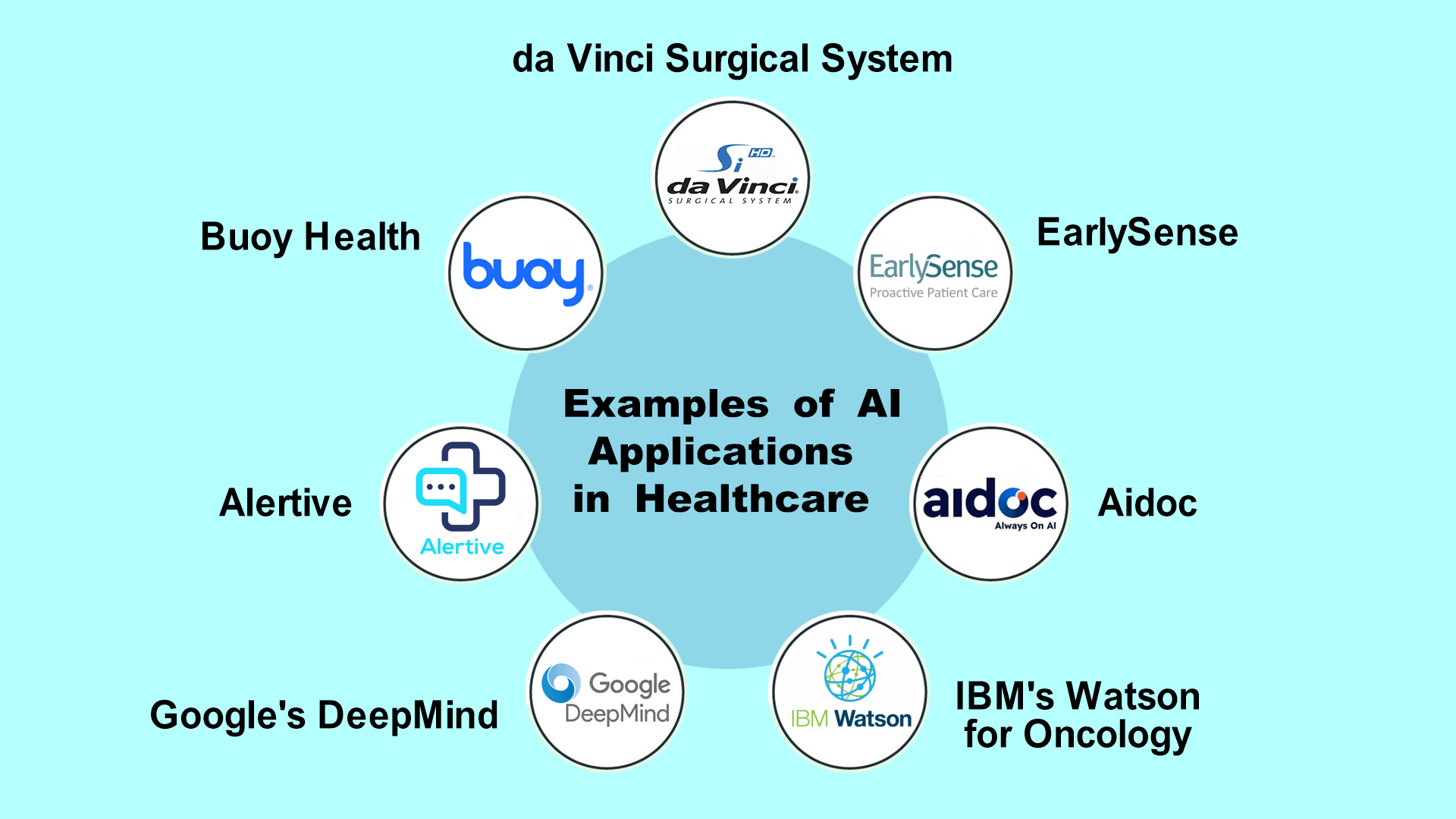
AI came into the scene to transform healthcare in a number of ways dealing with different use cases that revolutionize care, diagnosis and treatment. In this section, we show real applications in the health space capturing the adaptability of AI.
- Robotic Surgery
Robotic surgery entails the use of AI which is being used by machine to improve both the precision and effectiveness in surgical procedures. AI proves to be an integral part of many surgical instruments, as a stand-alone unit or incorporated into the machine itself; for example, the da da Vinci Surgical System includes David’s favorite feature of Ai technology - Assisting surgeons in performing minimally invasive surgeries. This system guarantees higher ability of dexterity and more accuracy than is performed with the naked hands, appearing to be particularly beneficial in complex surgery employing tiny incisions. It means that surgeons are the ones that manipulate the robotic arms under AI’s digital control; this leads to fewer recovery times and enhances surgical outcomes.
- Predictive Analytics
Healthcare systems powered by AI are revolutionizing the field with predictive analytics, which enables planning for patient outcomes and efficient resource allocation. EarlySense, a monitoring platform for patients, uses AI algorithms that are able to analyze vital signs and recognize primary markers of patient decline. They will not wait for complications to happen and only react later; they will predict what could potentially become a health risk at the very early stages so as to intervene in advance. This use of AI, in addition to the improvement of patient care, also has economic justification as it helps optimize the utilization of healthcare resources.
- Personalized Medicine
Personalized medicine is innovated as a new AI-driven innovation, providing a specific treatment to each patient based on individual peculiar characteristics such as DNA content. However, the IBM Corporation’s Watson for Oncology is a very good example since it uses AI to analyze millions of scientific publications, clinical trial data, and patient profiles. This tool provides tailored advice on treatment protocols for the doctors regarding the latest research of medicine. Through the utilization of genetic information and previous medical responses,AI helps to provide more precise treatment plans where possible, reducing side-effects and improving confidence of future patient outcomes.
- Disease Diagnosis and Image Analysis
AI-based applications are designed to effectively diagnose diseases and analyze images, especially in the areas such as radiology. In this respect, for instance, Google’s DeepMind designed an AI algorithm that can analyze retinal scans to identify diabetic retinopathy. Diagnosis of early signs for the disease by AI ensures an intervention in time and prevents loss of vision. Likewise, Aidoc uses AI by analyzing medical images more importantly that need attention from the radiologists. This speeds up the diagnostic procedure, guaranteeing that conclusions are handed over along a respectable period of time.
- Virtual Health Assistants
AI-powered virtual health assistants improve patient engagement and also add the much needed value that is supportive. One of such AI-driven chatbots is Buoy Health with which users interact to provide information about their symptoms and health history. This information creates a background for Buoy to give some tentative observations and recommendations concerning whether care is required. These digital concierges not only provide patients with information regarding their health but also lighten the patient load on physicians’ shoulders by performing the interim triage functions automatically.
These particular life instances illustrate widespread everyday application of AI in healthcare - starting from robotic surgery and ending with personalized medicine and predictive analytics. In this section, as we move to study the ever-changing nature of AI in healthcare, we look at various security policies put into practice; mainly physical and data protection.
Conclusion
In summary, the implementation of AI in healthcare has marked a new revolution by providing an innovative approach to the treatment process and accelerating the test results as well as aiding in isolating and selecting disease - free tissue while performing prostate cancer surgery. AI has completely redefined the approaches in subsequent advancements beginning from details of robotic surgery to personalized health information available within predictive analytics, and tailored medicine.
Because AI in healthcare represents a future that we start approaching, here and now the more evident opportunities of breakthrough technologies are emerging. Should you or your organization dream that wishes to innovate and further support the wave of innovation in healthcare, looking into developing AI-powered Healthcare App development and its implementation, we at Addevice are here for help.
Contact Us for Your AI Healthcare App Development Journey
In Addevice, we provide innovative solutions in healthcare and use artificial intelligence to improve patient care while maximizing accuracy in the healthcare system through minimization of trials. Whether you know for sure the exact interface of an AI health care application or have a desire to explore the capabilities- our skillful team is always ready to share their ideas with you.
Get in touch with us to begin a transformative journey of healthcare technology. Let us create the future together and, what is more, let us speak about an era in which AI presents itself as a significant contributor to the quality of patient life. Jointly with utilization of our expertise, your concept may change the coming generation of applications related to healthcare. In partnership, let us develop models that will relocate the position of standard care and propel health-care innovation via artificial intelligence.
Discover the Power of AI in Healthcare App Development
Exploring the profound impact of artificial intelligence in revolutionizing healthcare app development.
Join us as we delve into:
✅ Cutting-edge AI technologies
✅ Enhancing patient care
✅ Streamlining medical processes
FAQ
Healthcare app development with the help of an artificial intelligence platform will lead to several benefits as far as inflow and outflow are concerned. It is this feature that helps with the improvement of diagnosis accuracy, personalized treatment plans and streamlined administration tasks leading to enhanced patient results. AI based applications enhance the processes of treatment, increasing the productivity of healthcare delivery and improving patient satisfaction.
Some real-world applications of virtual collaboration are the da Vinci Surgical System, called years for prediction purposes as in EarlySense and personalized medicine such as IBM’s Watson for Oncology. AI is involved in disease diagnosis as well through image analysis such that Google’s technology known as DeepMind can be used for diabetic retinopathy and virtual health assistants like Buoy Health whose chatbot is facilitated by artificial intelligence to analyze symptoms.
The Alertive developed by Addevice is among AI applications with advanced systems like the hyper-compliance security ones that are built using high-level systems. These programs promote the privacy and safety of patient information. Constructed of strong encryption, secure storage and compliance with healthcare regulations such as HIPAA, AI-powered health apps are insured to carry out partnerships confidentiality and avert potential data leakages.
Alertive is an AI healthcare mobile app project created by Addevice, one of the most recognized providers in AI healthcare app development. The company is focused on designing solutions that help resolve complicated issues in the area of Healthcare, and incorporate artificial intelligence for diagnostics, patient monitoring and administrative tasks automation. Addevice specializes in creating applications fulfilling HIPAA guidelines, improving doctor-patient interaction, automating processes within the industry and bolstering patient results.
The development of an AI healthcare app using Addevice is as easy to start. Request a consultation either through the contact number or email address that you can find on our site. Whether you have a clear picture of how your app should be, or are still blue sky thinking; our expert team is here for you to successfully navigate through the project application development journey. Together, we can make your ideas more real and alive, using AI in healthcare to influence the development of new pathways to wellness.





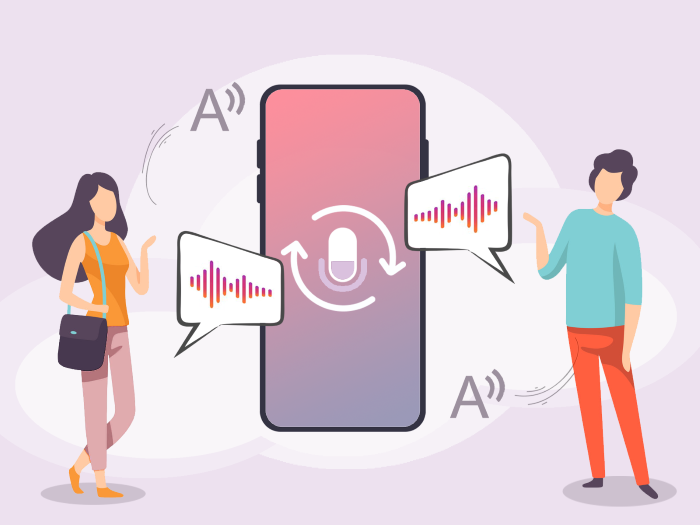 How to Create a voice translation app: Features & Cost
How to Create a voice translation app: Features & Cost
 How To Start A Streaming Service: Guide For App Ideas
How To Start A Streaming Service: Guide For App Ideas
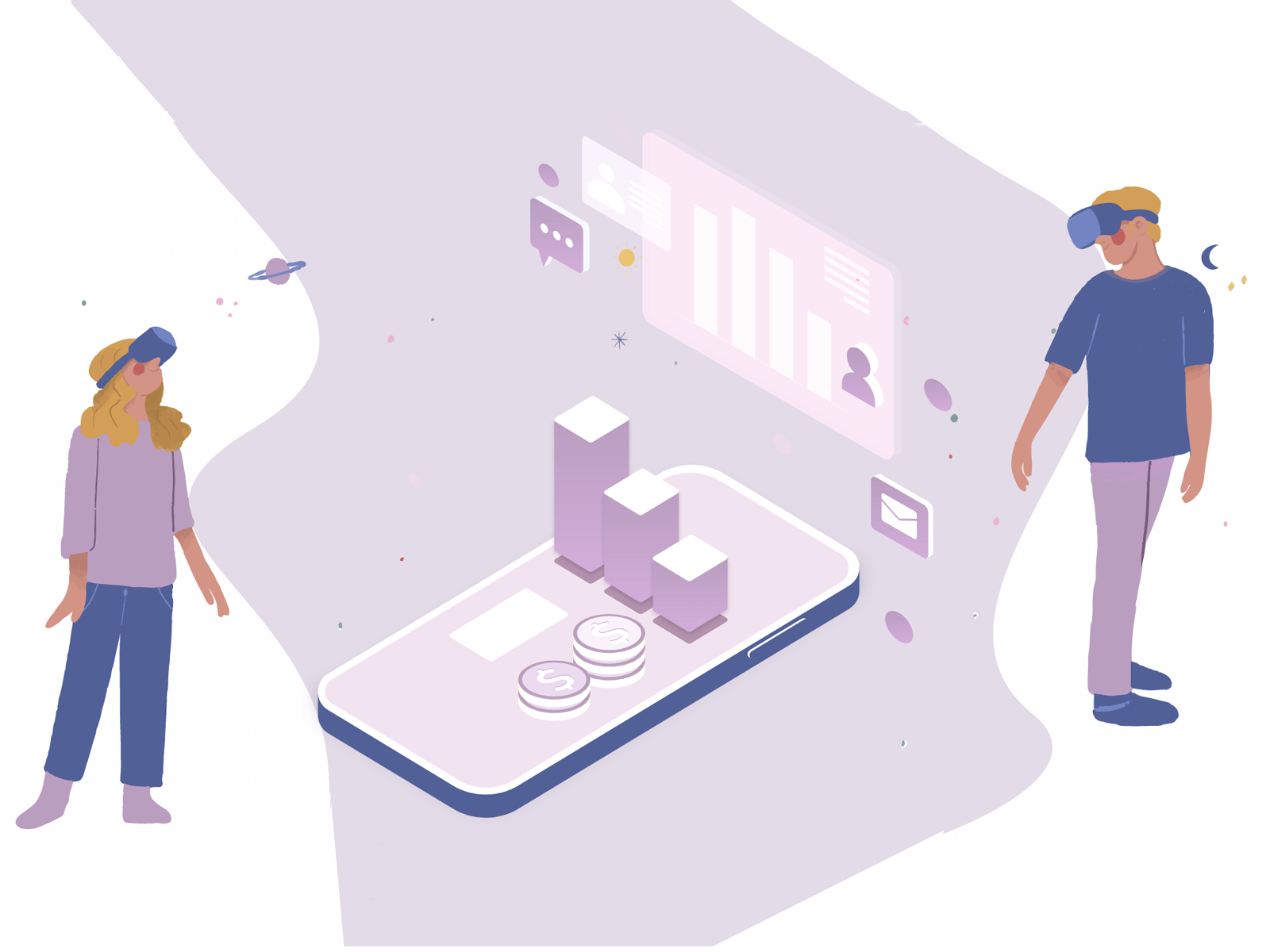 Augmented Reality App Development: Extensive Guide
Augmented Reality App Development: Extensive Guide